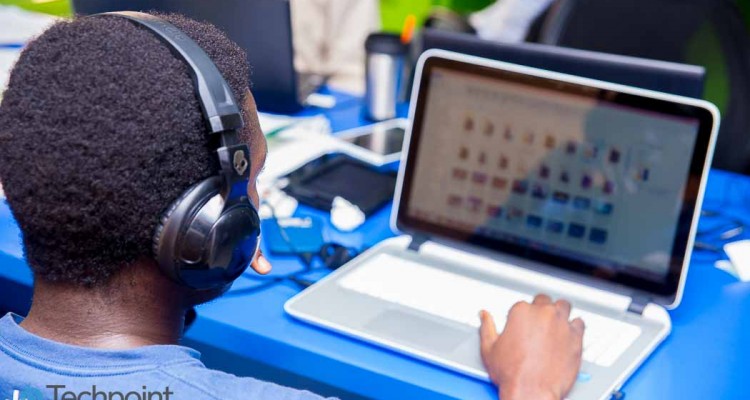Ik Obi has relied on Google products for nearly two decades to meet personal and business needs.
This year, the Alvative founder began reluctantly migrating his team’s operations to Zoho, an Indian technology provider that develops a host of services, including email, bookkeeping, and marketing automation tools for businesses. He says this change has been months in the making.
In 2022, several Nigerian banks began limiting how much customers could spend on international transactions using their naira cards.
Their decision stemmed from the difficulty in obtaining the foreign exchange required to facilitate these transactions. While some banks temporarily lifted the ban, Nigerians were, for the most part, unable to make international transactions with their naira cards.
In June 2023, the situation escalated as the Central Bank announced its decision to float the naira, exacerbating the challenges faced by businesses.
Since then, the naira has lost much of its value against the dollar. According to Bloomberg, it lost 55% of its value in 2023 and was the worst-performing currency globally behind the Lebanese pound and Argentine peso.

There’s software at home
While this rapid devaluation has seen all businesses in the country record higher operational costs, the dependence of most Nigerian startups on foreign-built software has seen a host of them begin the search for local alternatives.
Technology startups in the country use products such as Notion, Slack, Google Workspace, Amazon Web Services, and Azure for project management, database storage, and communications. As the majority of these products are developed by non-African entities, their pricing is typically quoted in dollars.
Therefore, as the naira has lost its value against the dollar, the cost of using these products has increased in naira terms even though the dollar price of these products remains fixed.
For example, startups could pay for their Slack bills by buying dollars at ₦765/$1 around July 2023. Now, they’ll need more than double that amount to pay for the same product.
That has led to them seeking local alternatives, Babatunde Akin-Moses, the CEO of Sycamore, tells me. The biggest cost increase his startup has seen is related to infrastructure as its cloud hosting and infrastructure are hosted on Amazon Web Services (AWS).
Where possible, many startups have switched to local alternatives that bill in naira. Even where they need certain services, startups are reluctant to use foreign products due to their cost implications.
“You have a Nigerian guy billing you in naira and the foreign guy billing you in dollars. Before you even hear the pitch, the foreign guy is at a disadvantage. We don’t want to have these conversations because anything dollar now, we don’t want to see it except you’re the only one who can provide those services. If there are alternatives, we’ll go with them,” Akin-Moses notes.
Opex isn’t the only area startups are having to cut costs. In-person events outside the country provide networking and business development opportunities for startups, but many are evaluating the importance of attending these events.
Obi jokingly shares that his plans to attend many events outside the country have been paused and says there are events at home, a thought which Akin-Moses echoes.
“If you’re earning naira, spend naira. You don’t want to be thinking of how to convert dollar,” Adewale Yusuf, CEO of AltSchool Africa says, “It’s a time to rethink strategy,” he adds.
Forex revenues may cushion effects
An unintended consequence of this is that startups have begun thinking of ways to provide services that will be billed in dollars.
Sycamore has fast-tracked its plans for a financial product targeted at the diaspora as it attempts to earn forex to cover the costs of products for which there are no local alternatives.
“It’s always better to try to match your FX obligation with FX revenue. If not, your naira is going to keep going down if you have to keep converting and that’s a losing game,” he submits.
Not all startups have switched to local alternatives, though. Ope Adeoye, the CEO of OnePipe shares that his startup has not switched to local alternatives. Instead, we have “tightened our belts and implemented optimisations across various components of our infrastructure.”
Currency devaluation is hurting fundraising plans
For much of the past decade, Nigeria, Egypt, Kenya, and South Africa have been the top destinations for venture capital in Africa, with Nigeria frequently ranking first. In 2023, it slipped down the rankings having raised less money than the other three countries.
Part of that can be attributed to the reduced venture capital activity globally, but its economic situation has also played a role. Much of the capital gotten was raised in dollars whereas startups earned revenues in naira.
At some point in 2023, the conversation was around what exchange rate startups should use when reporting revenues and when raising capital. It’s a lot harder now to have any conversations as even a 2x naira revenue growth does not translate to much in dollar terms.
While investors retain an interest in Nigerian startups, they may be forced to reassess their strategies if the naira continues to slide.











